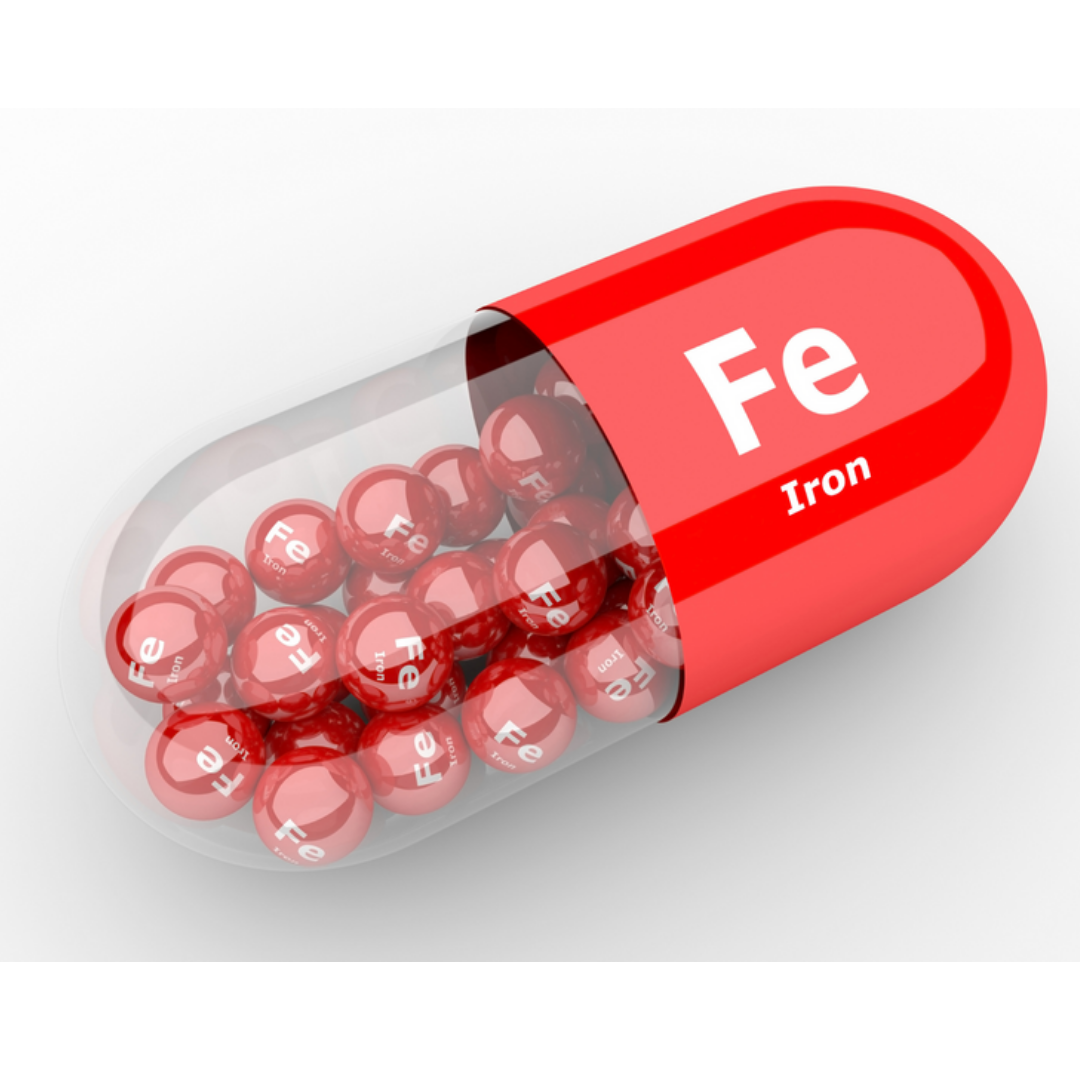Can Iron accelerate aging?

You probably know a little bit about iron. You know it is in a lot of multivitamins and is good for our bodies, particularly for our blood. But, like anything, too much of a good thing can sometimes have negative consequences.
What is iron?

Iron is a mineral that our bodies need for growth. Our bodies use iron to make hemoglobin, which is a protein in our red blood cells. Hemoglobin carries oxygen from the lungs to the rest of our bodies. Iron also helps us make myoglobin that specifically oxygenizes muscles. Iron is also used to help make some hormones.
You can find iron naturally in foods like meat, poultry, seafood, white beans, kidney beans, spinach, peas, nuts, and raisins. Some processed foods such as bread and breakfast cereals are fortified with iron.
How much iron do I need?

There are several factors that can determine what your body needs, but according to the National Institutes of Health, guidelines are as follows:
-
Men (ages 19 and older): 8 milligrams
-
Women ages 19-50: 18 milligrams
-
Women ages 51 and older: 8 milligrams
-
Pregnant women: 27 milligrams
Most people get enough iron from our food. If you don’t get enough iron, our bodies use iron we’ve stored in our muscles, bone marrow, liver, and spleen. But when those reserves get low, a person can develop anemia. Red blood cells carry less hemoglobin and your body gets less oxygen.
Symptoms of anemia
-
Upset stomach
-
Lack of energy
-
Weakness
-
Concentration and memory issues

Iron deficiency can also lead to a suppressed immune system, inability to exercise, trouble keeping your body temperature at a normal level, and in children, learning difficulties. It is a fairly common occurrence among many young children, pregnant people and women under 50. It’s also common in people who don’t eat meat, people who have gastrointestinal problems, and those with poor diets.
Can I have too much iron?

There can be consequences for iron levels that are both too low or abnormally high. Things such as liver disease and Parkinson’s disease can be the result of blood iron levels.
Too much iron can cause reactions that create free radicals. Free radicals can accelerate cellular aging and damage tissues. Iron is essential but can be toxic at high levels. This can lead to heart failure, liver disease, high blood sugar and arthritis. Iron accumulation in the brain can contribute to conditions like Parkinson’s and Alzheimer’s disease. Most of these things are related to aging.
Iron and aging

Obviously iron is an essential element. Because it is both needed and potentially harmful, discovering the optimum level is important.
Research shows that iron accumulates as we age and too much has been shown to shorten lifespans. There are drugs and lifestyle changes that can help block iron and possibly extend life. Rapamycin, calorie restriction and donating plasma and blood help control the stores of iron in our bodies so that they are in a low or normal range.
Another study out of the University of Edinburgh, concluded that high levels of iron in the blood have a negative impact on aging. Data from more than a million people showed that healthy iron levels could be the key to longevity and could decrease the chances of getting certain age related diseases. The researchers say that designing a drug that could affect iron metabolism could happen in the future, but there are many more studies to be done for this to happen.
One other thing these studies have shown is that the free radicals that too much iron helps create can also cause the accumulation of senescent cells. These are the cells that drive the aging process and the more we have, the faster we age.
How do I control my iron levels?

Ideally, you want to keep your iron levels healthy so that your body doesn’t go overboard. There are some simple things you can to help reduce iron accumulation in your body.
-
Don’t take iron supplements. You don’t need them as you get iron from food.
-
Limit red meat. You don’t need to give up your juicy steaks, but just don’t have them as often.
-
Intermittent fasting. This helps your body rest because it isn’t constantly digesting food. When your body rests, it has an easier time policing itself for free radicals.
Iron is one of those things that is both a blessing and a curse. Like all good things, moderation is key. Some simple lifestyle changes and avoiding excess iron could help keep your levels in check and may help prevent age-related health and neurodegenerative problems.